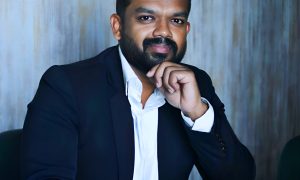Nikhil Patel graduated from Symbiosis Law School, Pune in 2010. He has worked with business teams, as a legal expert, in multiple jurisdictions, including India, Malaysia, South Africa on a variety of corporate and commercial issues. He has also managed litigation in civil, criminal and labour related matters in both India and South Africa.
Recently, he moved from being the Chief Legal Officer of Cipla Medpro in Cape Town, South Africa to Senior Legal Counsel for DSM Sinochem Pharmaceuticals in the Hague, The Netherlands. He has an LL.M. in Corporate and Commercial Law from the University of London and currently pursuing M.B.A. from the University of Warwick, both through distance learning courses.
In this interview he talks to us about:
- Biggest hurdles in the early days of his career.
- Role of an in house/general counsel in India.
- Advise for law students on maintaining a good academic profile.
- What recruiters look for in law graduates.
How would you like to introduce yourself to our readers?
I’m a 2010 graduate of Symbiosis Law School, Pune. I’ve worked with Suzlon, Biocon and Himatsingka in the past, and recently moved from being the Chief Legal Officer of Cipla Medpro in Cape Town, South Africa to Senior Legal Counsel for DSM Sinochem Pharmaceuticals in the Hague, The Netherlands. I have an LL.M. in Corporate and Commercial Law from the University of London and am currently pursuing my M.B.A. from the University of Warwick, both through distance learning courses.
What motivated you to pursue this field?
I knew I wanted to be a lawyer from a relatively young age, although it was the allure of litigating in court at that point. This quickly changed during my time at college, where I found the intersection between business and law, particularly contract negotiation and creative problem solving, were much more attractive to me. This was particularly evident during my internships, since I enjoyed the in-house internships the most.
What do you think were the biggest hurdles and challenges in the early days of your career? How did you deal with them?
The biggest hurdle for me was about Law school is great for giving you theoretical knowledge, however it doesn’t prepare you very well for the practical side of being an in-house counsel. This meant a lot of late nights working on drafting styles, negotiation tactics and strategies and most importantly a superior that is willing to invest in training you, which is especially difficult in a typically underfunded and understaffed support team. I can’t stress enough on how important it is to find people in positions above you that are willing to spend time giving you context, exposure and knowledge.
Practical legal training aside, there were some skills that I needed to learn (and/or bad habits that I needed to unlearn) like empathetic listening, a risk evaluation and mitigation approach rather than risk avoidance and having a thorough knowledge of the business behind the legal agreements I was negotiating.
What did your work profile at Cipla Medpro consist of and what do you now do at DSM Sinochem? What is the role of an in house/general counsel in India?
My profile at Cipla Medpro included contract drafting and negotiation, litigation strategy and settlements, labour law, strategic advisory and transactional structuring, competition advice, corporate restructuring, compliance and a little IPR with a strong focus on the pharmaceutical sector in South Africa. The pharmaceutical focus continues at DSM Sinochem, though as a global role rather than limited to a particular geographical area.
The in-house counsel is first and foremost a generalist. This means that you tend to do a little bit of everything and are expected to have knowledge (a working knowledge, at minimum) of everything. This means that you have to spend a lot of your time being up-to-date on not only the latest business updates of the industry sector, but also on legal updates pertinent to that sector. You play a vital role in the on-going business of your company – through contracts up and down the supply chain – as well as the future of the company by giving input on the strategic direction and advising on risk management and mitigation. Particularly with the rise in costs of external counsel (and reducing legal team budgets), companies are giving more and more responsibility to their in-house counsels, making the role more dynamic and exciting.
What advice do you have for law students on maintaining a good academic profile?
A good academic profile gives you a ‘foot in the door’. After that, it is up to you to make a great impression in the interview and ensure that you work hard to learn and add value to the place that you work. Of course it always helps that a good academic profile should indicate that your knowledge base is sound.
What do recruiters look for in the current crop of law graduates?
If you are a law graduate fresh out of college most recruiters will test your basic knowledge to ensure that you understand the fundamentals of the law. However, by far the most important aspect, at least from my experience, is attitude and ability. One of my previous superiors once commented while we were interviewing to fill a legal position that everything but attitude and ability can be taught and that those were often the hardest to find.
When and how did you decide to pursue masters? Was it a professional requirement or an endeavor out of academic interests?
I pursued my LL.M. simply because at the time I was working on a large number of agreements that were international and I wasn’t sure that I knew everything that I needed to know while I was drafting them. While it was difficult to manage my obligations and my studies, the LL.M. was fantastic in my opinion. It focused on teaching me how to apply the legal principals I was learning, and since I was working while I was studying the LL.M., I was able to put this into practice immediately.
More recently I realised that if I wanted to grow further in the corporate world, purely legal knowledge is insufficient and that you also need an understanding of how HR, Finance, Marketing, Strategy and the other functions within a company operate. This realisation, coupled with the great experience of the distance learning LL.M. led me to begin the Distance Learning M.B.A. from Warwick Business School.
What would be your advice to our budding lawyers?
My advice would be, once you have decided that you want to practice law (whether in-house, at a law firm or as a litigator), make sure it is something that you truly enjoy doing. You’ll find that makes all the difference in whether you excel at it.



























